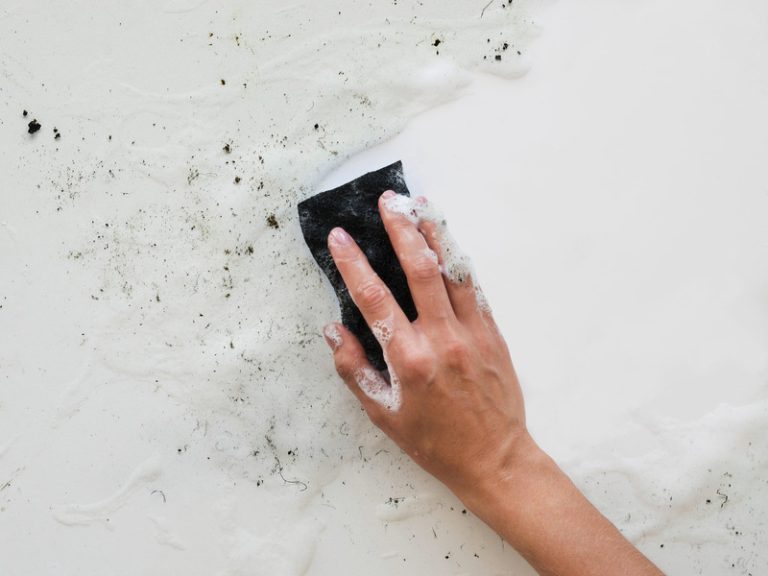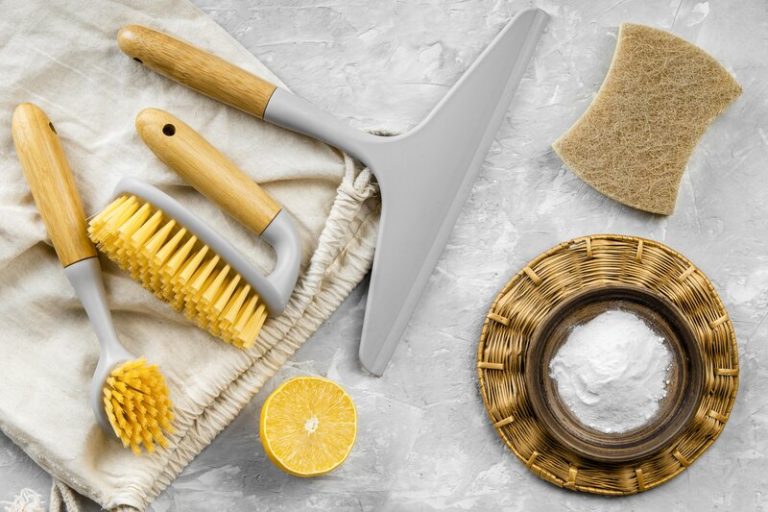Noticing that your fridge smells but no rotten food is present can be puzzling. Even without visible signs of spoilage, unpleasant odors can still develop, leaving you wondering why this is happening.
Understanding why does my fridge smell despite the absence of obvious issues is crucial for maintaining a fresh and inviting kitchen. Factors such as spilled liquids, hidden mold, or even old odors trapped in the appliance can contribute to the problem.
By addressing these potential sources of odor, you can effectively tackle the issue and keep your fridge smelling clean. Uncover the secrets of why your fridge smells!
Why Does My Fridge Smells But No Rotten Food?
Even if there is no rotten food in your fridge, a persistent smell may still arise due to factors such as bacterial growth, mould, and potential issues like a freon leak or other hidden causes within the refrigerator compartments. These hidden issues can contribute to ongoing unpleasant smells.
a. Is It Possible for Food to Spoil Without Smelling?
Yes, it is possible for food to spoil without producing a noticeable smell, especially when specific bacteria are responsible for the spoilage.
This occurs because certain bacteria, such as psychrophiles and non-pathogenic spoilage organisms, can multiply at low temperatures and have the ability to break down food components without emitting strong odours. In such cases,
Visual checks play a crucial role in detecting any changes in colour, texture, or appearance that indicate spoilage, prompting consumers to exercise caution. Relying solely on expiry dates can help prevent the consumption of spoiled food, as some pathogens may not produce odours but can still cause illness.
b. What Other Factors Can Cause Fridge Odours?
Other factors that can cause fridge odours include burnt plastic, the presence of dead animals, and gas leaks.
When plastic food containers accidentally touch a hot surface in the fridge, they can melt and emit a strong burnt plastic smell that lingers. Similarly, if a small animal sneaks into your fridge and unfortunately dies, the decomposition process releases foul odours. Gas leaks, though rare, can also lead to unpleasant smells within the fridge. To address these issues, it’s crucial to regularly clean out old food, inspect for any spoiled items, and ensure proper ventilation to prevent odours from accumulating.
How Do I Get Rid of Fridge Odours?
Getting rid of fridge odours involves a combination of thorough cleaning, organising, and using natural deodorisers like bicarbonate of soda and vinegar.
a. Clean and Organise the Fridge
To effectively clean and organise your fridge, start by removing all items and thoroughly washing shelves and compartments to eliminate bacteria and mould.
Next, prepare a solution of warm water and mild dish soap to wipe down all surfaces inside the fridge, including door seals and drawers. Use a sponge or cloth to scrub away any spills or residue that may have accumulated. Be sure to pay extra attention to corners and crevices where dirt and grime tend to build up.
Once the interior is clean, don’t forget to sanitise the exterior of the fridge, including the handles and doors. A mixture of water and vinegar can effectively disinfect these areas and remove any lingering odours.
b. Check for Spoiled Food
Regularly checking for spoiled food in all compartments of the fridge can help prevent lingering odours.
Expired food not only affects the freshness of other items but can also pose health risks if consumed. To establish a routine for regular checks, designate a specific day each week to go through the contents of your fridge. Start by removing items from the back and bottom shelves, where items tend to get overlooked. Check labels for expiry dates and signs of spoilage, such as mould or off smells. Don’t forget to inspect condiments and sauces, as they can also go off over time.
c. Use Natural Deodorisers
Natural deodorisers like bicarbonate of soda, lemon juice, coffee grounds, vanilla essence, and newspaper can effectively neutralise fridge odours.
When using bicarbonate of soda, simply place an open box in the fridge to absorb unwanted smells.
For lemon juice, mix it with water in a spray bottle and spritz inside the fridge for a fresh scent.
Coffee grounds can be placed in a bowl to eliminate odours, whereas vanilla essence on a cotton ball can add a sweet fragrance.
Crumple up newspaper to soak up moisture and odour. Remember to change or refresh these deodorisers regularly, ideally every 1-2 months for optimal freshness.
d. Try Baking Soda or White Vinegar
Bicarbonate of soda and white vinegar are powerful agents that can absorb and neutralise unpleasant smells in your fridge.
Bicarbonate of soda, also known as sodium bicarbonate, works by trapping and neutralising odours, while white vinegar disinfects and further eliminates any lingering smells. To use these natural deodorisers, simply place an open box of bicarbonate of soda or a bowl of white vinegar in the fridge. You can also mix a solution of equal parts water and white vinegar to wipe down the interior surfaces of the fridge. Make sure to replace the bicarbonate of soda every 2-3 months for optimal effectiveness. Avoid mixing vinegar with commercial cleaning products as it can produce harmful fumes.
How to Prevent Fridge Smells But No Rotten Food?
So that the problem of fridge smells but no rotten food does not happen again, here are some precautions that can be taken:
a. Properly Store Food
Properly storing food in airtight containers or cling film can significantly reduce the risk of odours developing in the fridge.
Another effective method is using glass containers. Glass is non-porous, meaning it won’t absorb odours or stain like plastic can. Glass containers are dishwasher safe, making them easy to clean and reuse.
You can also consider vacuum sealing for certain food items. By removing the air from the packaging, you can extend the shelf life of foods like meats, cheeses, and even fruits. This method helps in preventing freezer burn and maintaining the freshness of the food.
b. Keep the Fridge Clean
Keeping the fridge clean by regularly wiping down surfaces and removing spills can prevent bacteria and mould growth, which are common sources of odours.
Aside from preserving the freshness of your food, a clean fridge also ensures a healthy environment for storing your perishables. To maintain optimal cleanliness, it is advisable to conduct a full clean-out of your refrigerator once every month. Start by removing all items, checking for expired products, and discarding any leftovers that have been sitting for too long.
Utilise a mixture of warm water and mild detergent to wipe down all shelves, drawers, and walls, focusing on areas prone to spills and residue buildup. For added freshness, place an opened box of bicarbonate of soda on a shelf to absorb any lingering odours.
Stay on top of spills and messes by immediately wiping them up with a damp cloth or sponge. Implementing a weekly routine of cleaning out expired items and sanitising surfaces can significantly reduce the chances of contamination and odours developing in your fridge.
c. Use Activated Charcoal
Activated charcoal is an effective tool for absorbing and neutralising odours in the fridge.
When using activated charcoal in the fridge, it’s important to place it in an open container to allow maximum surface area exposure. The porous nature of activated charcoal helps it trap and eliminate odours effectively.
One of the key benefits of using activated charcoal is that it is a natural and non-toxic way to freshen up your fridge without the use of harsh chemicals. Activated charcoal can also help in absorbing excess moisture, which can prevent the growth of mould and mildew.
It is recommended to replace the activated charcoal in your fridge every 1-2 months to ensure optimal odour-absorbing efficiency. Over time, the charcoal becomes saturated with odours and loses its effectiveness.
d. Check and Maintain the Fridge Temperature
Regularly checking and maintaining the fridge temperature can help prevent food spoilage and the resulting odours.
The ideal temperature for a refrigerator is around 3-4 degrees Celsius. This range slows the growth of bacteria, keeping food fresher for a longer period. To monitor the fridge temperature accurately, using a thermometer placed in the centre of the fridge is recommended.
When the temperature rises above 4 degrees Celsius, there is an increased risk of foodborne illnesses, as bacteria multiply rapidly. Maintaining the correct temperature not only extends the shelf life of food but also helps prevent strong odours from developing within the fridge.
e. Regularly Check and Change the Fridge Filter
Regularly checking and changing the fridge filter is essential for preventing odours and ensuring the appliance runs efficiently.
Most manufacturers recommend replacing the fridge filter every 6 months to maintain optimal performance.
By doing so, you not only improve the quality of water and ice but also prolong the lifespan of the appliance.
Checking the filter regularly is a simple yet crucial step in keeping your fridge in top condition and avoiding potential issues down the line.
To wrap up, when you encounter a situation where your fridge smells but no rotten food is visible, it’s important to look beyond the surface. Hidden spills, mold, or trapped odors can often be the cause. By staying on top of these cleaning tasks, you can ensure your fridge remains clean and your kitchen welcoming.
However, for a truly comprehensive clean that tackles even the most elusive odours and ensures every inch of your fridge is thoroughly sanitised, it’s wise to seek professional help. TEKA Cleaning offers expert residential cleaning services designed to eliminate hidden messes and unpleasant smells with precision. Our skilled team uses advanced techniques and high-quality products to refresh and revitalise your fridge, making sure your kitchen environment stays pristine.
Don’t let hidden smells undermine your kitchen’s freshness. Contact TEKA Cleaning at 01233 751 544 today to schedule a deep cleaning service. Ensure your fridge and kitchen remain in top condition with our professional touch—because a truly clean fridge means a more pleasant cooking experience and a healthier home. Act now to enjoy the benefits of a meticulously cleaned kitchen!
Read also:











